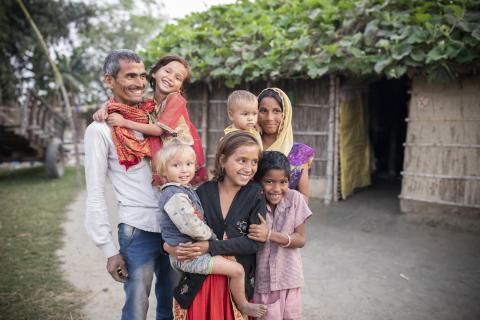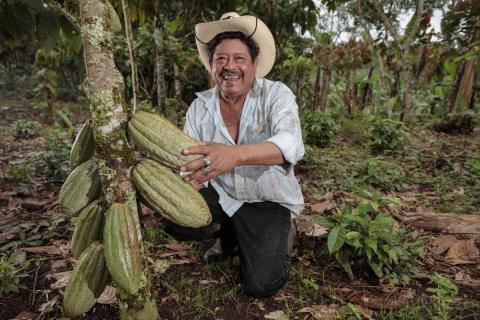Lutheran World Relief

Member Updates
By country
Member Update
More Updates
Member Update
Lutheran World Relief and our Corus International family of organizations is committed to addressing crises through a gender equality and social inclusion (GESI) lens, engaging women as change agents and investing in their leadership before, during and after disasters. To elevate women’s voices and leadership in disaster risk reduction (DRR) programming, Lutheran World Relief developed the IDEAL approach: intersectionality, delivery, equity, access and leadership. More information.
The Starbucks Foundation and Lutheran World Relief are building on the success of Kopi Nande project which reached over 26,000 individuals (15,000 women) in five communities across Karo Regency to promote health and hygiene using LWR’s Learning for Gender Integration methodology with the new MECIHO project just launched in the same region. MECIHO will continue to use women-led approaches to improve health, hygiene and living conditions in Karo Regency, reaching 25,000 people across an additional six rural coffee-growing communities. This project is part of The Starbucks Foundation’s new goal to positively impact 1 million women and girls in coffee-, tea-, and cocoa-growing communities by 2030. More information.
Lutheran World Relief implements the USAID-funded Women’s Global Development Prosperity: Expanding Women’s Labor Force in Lebanon (W-GDP: EWLFL) Project. One of the pioneering women taking part in the project is Nancy Ghannam, a Lebanese entrepreneur and activist who is breaking gender barriers and creating jobs for other women in her community. More information.
Amid one of the greatest humanitarian crises of our time, Lutheran World Relief staff and partners conducted an urgent distribution of cash assistance for internally displaced people (IDP) taking refuge at Al-Khora camp in the Ash-Shamayatayn District of the Taiz Governorate. The besieged capital has faced some of the most intense violence more recently, and blockades have resulted in critical shortages of food, water, cooking gas and medicine. More information.
Rick Peyser, Lutheran World Relief’s Senior Director, Private Sector Partnerships, shares about how migration is connected to the impacts of climate change on coffee farmers. More information.
Climate change is a clear and present danger to coffee farmers in Central America. Lutheran World Relief (LWR) is working with farm families and cooperatives in El Salvador, Honduras and Nicaragua, helping them cope. Rick Peyser, LWR senior relationship manager for coffee and cocoa, says that the effects of higher temperatures are already being felt and will accelerate in the future. Some farmers are transitioning to cacao plants, which better tolerate tropical climates. LWR is helping coffee farmers by focusing on resilience at the household level and employing Climate Smart Agriculture practices that use less water and reduce erosion. Farmers are making use of the organic waste that's left from the coffee harvest by composting for fertilizer and installing biodigesters, which capture the methane gas from organic waste and provide a fuel source for home cooking. More Information
